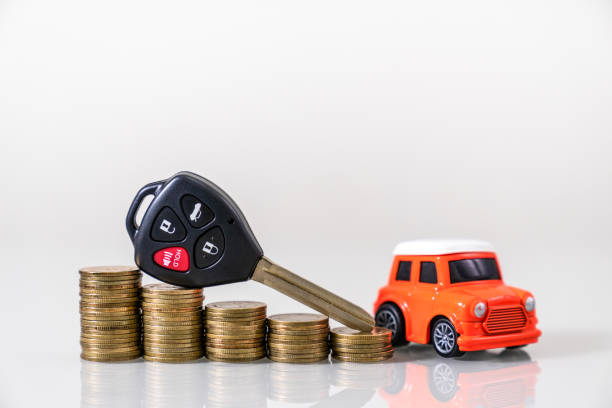Last Updated on September 28, 2022

There’s a case to be made that no debt is better than bad debt. However, for many people, borrowing money and getting into debt is the only option to buy critical big-ticket things like a home. While those types of loans are normally justifiable and beneficial to the person who takes on the debt, there is yet another side of the scale when debt is taken on carelessly. While it’s simple to distinguish between these two peaks, certain other debts are more difficult to assess.
When a lender examines your credit report to determine the types of accounts you have, some obligations will be treated more positively than others.
Money due for things that can assist develop wealth or boost income over time, such as education loans, mortgages, or company loans, is referred to as “good” debt. Credit cards and other consumer debt are examples of “bad” debt because they don’t help you improve your financial situation. These are exaggerated statements. The differences between “good” and “bad” debt are far more intricate.
What is Good Debt?
The classic proverb “It takes money to make money” exemplifies how good debt is often viewed as an investment. “How can something as awful as debt be regarded as an investment?” you might wonder. If the debt you take on helps you earn money and increase your net worth, it’s a win-win situation. Debt that enhances your and your family’s lives in other ways and contributes to your overall financial health can also be beneficial.
The following are some of the items that are frequently worth going into debt for:
A mortgage

There are numerous methods to profit from real estate. On the residential front, the most straightforward approach is taking out a mortgage to purchase a property, living in it for a few decades, and then selling it for a profit. You accumulate equity in your home, and the money you put toward it might be considered an investment.
Many people consider renting an apartment to be a waste of money, whereas buying a property allows you to develop equity. This, too, can result in a poor debt decision. Your mortgage debt can become bad debt if you borrow too much from your property or use your equity to buy things straight immediately.
Education

In general, the higher an individual’s educational attainment, the larger their financial potential, which may justify the need for a loan.
Education already has a favourable impact on one’s capacity to find work. Workers with a higher level of education are more likely to be employed in well-paying positions and have a better chance of finding new ones if the need arises.
Within a few years of joining the workforce, a college or technology degree can often pay for itself. However, not every degree is treated equally, so it’s important to think about the short- and long-term implications of any topic of study that interests you.
You should also keep the quantity of money you borrow to a minimum. You may be able to shift bad debt into a student loan, but don’t take more than you need just to have some additional cash.
Business loans
Borrowing money to establish your own business falls under the category of good debt. It may turn out to be a wise investment. Whether or not your company becomes the next Facebook, expanding it can help you increase your income.
It is typically both financially and psychologically satisfying to be your own employer. It can also be extremely taxing. Starting a business, like paying for education, has risks. Many businesses fail but choosing an area in which you are enthusiastic and competent increases your chances of success. You may help to ensure that borrowing for your business is a measured risk by planning ahead.
What is Bad Debt?

Bad debt might lead to more serious financial difficulties in the future. If you’re borrowing to buy a depreciating asset, it’s usually termed a bad debt. To put it another way, if it won’t increase in value or provide money, you shouldn’t put yourself into debt because of it.
When it comes to interest rates, bad debt tends to be more expensive than good debt. You could end up paying much more than the asset is worth because the payment is spread out over a lengthy period of time with a high-interest rate. When you take on too much bad debt, it becomes more difficult to get out of the hole later. Some examples include:
Car loans

Even if you find it difficult to function without a car, borrowing money to purchase one is not a good financial decision. The automobile is already of less value than when you bought it when you leave the car lot. If you need to borrow money to buy a car, seek a low-interest or no-interest loan. You’ll still be investing a significant sum of money in a depreciating asset, but you won’t have to pay interest on it.
Clothes and consumables
Clothing is frequently stated to be worth less than half of what buyers spend on them. If you look around a thrift store, you’ll notice that “half” is an exaggeration. Of course, you need clothes—as well as food, furniture, and a variety of other items—but using a high-interest credit card to acquire them isn’t a sensible use of debt. For convenience, use a credit card, but make sure you can pay off your full balance at the month’s end to avoid interest costs. Otherwise, try to make a cash payment.
Credit card debt

Due to the type of things purchased using credit cards, this is frequently regarded as bad debt. You shouldn’t be using credit to buy necessities such as clothing or food. If you have to use a credit card for these types of transactions, it should be planned, for example, to collect rewards fully understanding you’ll pay off your entire balance on the due date. It may be tempting to charge a trip on your credit card because you believe that taking a break will enable you to be more productive when you return. Even if it has true advantages, a vacation does not have substantial value.
High-interest loans
Payday loans and certain personal loans with exorbitant interest rates can be termed bad debt since the high-interest payments are impossible for the borrower to repay, leaving them in a worse financial state than before they acquired the debt. Loans of this nature should be avoided as much as possible.
The Bottomline
Making the decision to take on extra debt is a personal one that involves some research to see if you’ll receive more value out of it than you put in. You’ll be able to better judge whether or not this additional debt makes sense for you once you’ve calculated the principal payment, interest rate, potential late fees and penalties, and weighed those numbers against the worth of your asset on the other side of repayment.
Before you go…
Hey, thank you for reading this blog to the end. I hope it was helpful. Let me tell you a little bit about Nicholas Idoko Technologies. We help businesses and companies build an online presence by developing web, mobile, desktop and blockchain applications.
As a company, we work with your budget in developing your ideas and projects beautifully and elegantly as well as participate in the growth of your business. We do a lot of freelance work in various sectors such as blockchain, booking, e-commerce, education, online games, voting and payments. Our ability to provide the needed resources to help clients develop their software packages for their targeted audience on schedule is unmatched.
Be sure to contact us if you need our services! We are readily available.











